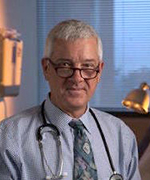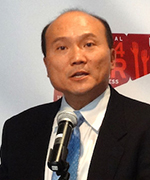Announcements: Kudos
National Academy of Medicine Elects 79 New Members
Congratulations to the four NIHers who were among the 79 newly elected members of the National Academy of Medicine in October 2016. Election to the academy is considered one of the highest honors in the fields of health and medicine and recognizes individuals who have demonstrated outstanding professional achievement and commitment to service.
Karen Faith Berman, M.D.

Senior investigator and chief of the Section on Integrative Neuroimaging, the Psychosis and Cognitive Studies Section, and the Clinical and Translational Neuroscience Branch, National Institute of Mental Health. Her group uses neuroimaging to map brain activity and neurochemical mechanisms associated with normal higher-cognitive function as well as dysfunction in neuropsychiatric illnesses such as schizophrenia, illnesses having genetic sources of cognitive dysfunction such as Williams syndrome, and other conditions affecting cognition such as normal aging. She also studies the effects of gonadal steroid hormones on brain function.
Leslie Glenn Biesecker, M.D.

Senior investigator and chief of the Medical Genomics and Metabolic Genetics Branch, National Human Genome Research Institute. His laboratory is engaged in studies in two main areas: clinical genomics and rare malformation syndromes, with a focus on disorders of mosaic overgrowth. His group is the first to launch therapeutic trials for Proteus syndrome, a congenital condition characterized by the overgrowth of bones, skin, and other tissues, and often accompanied by tumors.
Antonello Bonci, M.D.

Scientific director, National Institute on Drug Abuse, and chief, Synaptic Plasticity Section, Cellular Neurobiology Research Branch. His goal is to understand the synaptic properties and plasticity of neurons in brain areas relevant to stress and substance-use disorders. His laboratory was the first to demonstrate that cocaine produces a form of long-term cellular memory called long-term potentiation. His team is also developing novel optogenetic-based treatments against cocaine addiction.
Jake Liang, M.D.

Chief, Liver Diseases Branch, and deputy director of translational research, National Institute of Diabetes and Digestive and Kidney Diseases. His research focuses on understanding the mechanisms of disease and therapy, and improving treatment and prevention of hepatitis B virus and hepatitis C virus infections and viral hepatitis-associated hepatocellular carcinoma.
This page was last updated on Tuesday, April 12, 2022
